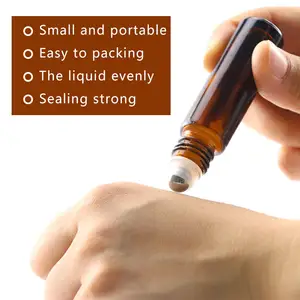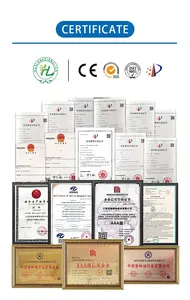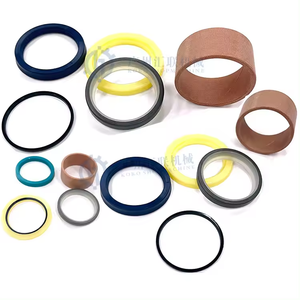(385 products available)


















































































































































Kokos oil or coconut oil is an edible oil extracted from the flesh of mature coconuts. It is commonly used in cooking, cosmetics, and traditional medicine. There are different types of coconut or kokos oil based on how they are produced. They include the following:
Virgin coconut oil
Virgin coconut oil is produced from fresh coconut meat. The oil is cold-pressed to extract the oil without using any heat. This method helps preserve the flavor, aroma, and nutrients in the oil. It is considered one of the purest and highest quality coconut oils. The oil is mainly used in cooking, cosmetics, and dietary supplements.
Refined coconut oil
Refined coconut oil is made from dried coconut meat. The oil undergoes higher heat during extraction to refine and filter it. The refining process removes any impurities, strong odors, and flavors from the oil. This type of coconut oil is more affordable and has a higher smoke point. It is mainly used in cooking and baking and in some beauty and personal care products.
Organic coconut oil
Organic coconut oil is made from coconuts that are grown using organic farming methods. The coconuts are not treated with any pesticides or chemicals. The oil is also produced using organic processing methods. It is often certified organic and is considered free from any harmful chemicals. This type of coconut oil is preferred by people who follow strict organic diets. It is also used in cooking and skin care.
Copra coconut oil
Copra coconut oil is made from dried coconut meat. The copra is the flesh of the coconut. It is also known as the dried form of coconut. The flesh is dried in the sun or smoke houses before it is pressed to extract the oil. This type of coconut oil is mainly used for industrial purposes. It is also used to make soaps.
Fractionated coconut oil
Fractionated coconut oil stays in liquid form at room temperature. It is produced by separating different components in the oil. The healthy fatty acids like caprylic and capric acid are left behind. This makes the oil lightweight and non-greasy. It is mainly used in massage oils, aromatherapy, and some skin care products.
Purity Levels
When selecting coconut oil, opting for the purest form available is essential. The two main types of coconut oil are virgin and refined. Virgin coconut oil undergoes minimal processing and retains most of its beneficial properties, making it a superior choice. On the other hand, refined coconut oil undergoes additional processing to remove impurities and may lose some of its health benefits. Choosing virgin coconut oil ensures that one gets all the advantages coconut oil offers, whether for cooking, baking, or skincare purposes. The purity level directly impacts the coconut oil's quality and effectiveness, so always choose the highest quality.
Organic Certification
When buying coconut oil, looking for an organic certification is essential. This ensures that the coconut oil comes from coconuts grown without harmful chemicals, pesticides, or fertilizers. Conventionally grown coconuts may be exposed to these toxic substances, leaving residues in the coconut oil that could harm health. Choosing organically certified coconut oil gives peace of mind that it is as pure and natural as possible. This means the coconuts are cultivated using organic farming practices for the benefit of the environment and human well-being. While non-organic coconut oil may be cheaper, the cost difference is worth it to obtain a truly chemical-free product. An organic label is a guarantee of quality and safety regarding coconut oil for internal or external use.
Packaging and Storage Conditions
Coconut oil is sensitive to light, heat, and air exposure, which can degrade its quality over time. When selecting a suitable coconut oil, pay attention to its packaging and storage conditions. Ideally, coconut oil should be stored in a dark glass container. This type of container best protects the oil from harmful light exposure that can cause oxidation and loss of beneficial nutrients. Additionally, the jar should fit tightly to prevent any contact with air, which would also oxidize the oil and shorten its shelf life. Proper packaging and storage conditions are vital to maintaining coconut oil's purity and effectiveness. Avoid any coconut oil that comes in clear plastic containers as it lacks adequate protection. Always choose coconut oil that has been optimally packaged for quality preservation.
There are different ways to use coconut oil to enjoy its benefits fully. Below is how to use it.
Cooking with Coconut Oil
It is advisable not to overheat the coconut oil when cooking with it. This is because overheating can destroy the nutrient value of the oil. Use it to sauté vegetables or even bake with it.
Skin Care
Apply the oil immediately after taking a bath or having a shower. This will help the oil to be absorbed into the skin more easily. You can also use it to treat minor burns, rashes, and insect bites.
Hair Care
Massaging coconut oil into the scalp can help improve blood circulation. It can also help to prevent dandruff and dry scalp when used regularly. Use it to condition and moisturize the hair shaft before washing.
Dental Health
Swish the coconut oil in the mouth for about 10 to 15 minutes and then spit it out. This helps get rid of bacteria in the mouth and freshens bad breath.
The product safety of coconut oil depends on the process used to make it. Any free fatty acid coconut oil is safe for consumption and topical application. This is because it retains all the beneficial properties of coconut oil. Coconut oil extracted using heat or fermentation method is also safe.
On the other hand, coconut oil extracted using chemicals may leave some chemical residue. This chemical residue can be harmful to the skin and when ingested. It is best to avoid using any deodorized or bleached coconut oil.
Hair care
Kokos oil is an excellent hair conditioner. It prevents dandruff and promotes healthy hair. People use it as a hair treatment by massaging it into the hair and leaving it for a few hours or overnight.
Moisturizer
Kokos oil has fatty acids that help draw moisture into the skin. It also makes a barrier that locks in moisture so the skin stays hydrated. People with dry or ashy skin can use kokos oil to help them.
Antibacterial and antifungal properties
Kokos oil contains lauric acid, which has been shown to kill bacteria and fungi. This property may help prevent minor infections and acne when kokos oil is applied to the skin.
Makeup remover
Kokos oil is an effective and natural makeup remover. It breaks down even waterproof makeup without irritating the eyes or skin. After using it to remove makeup, one can leave the skin clean and moisturized.
Organic and pure
Some types of kokos oil are made from pure and organic coconuts. They don't have any chemicals added to them. This makes the oil very potent and effective for use.
Packaging
Kokos oil usually comes in either plastic bottles with pump dispensers or jars. Some packages are dark-colored to reduce the effect of light on the oil and preserve it better. The oils are sealed to prevent leakage and ensure hygiene in the packaging.
Variety of sizes
Kokos oil is available in different sizes for home and travel use. They come in large containers for personal use and small containers for travel. The small containers also serve as samples for trying out the product before buying a larger size.
Q1. Can coconut oil lighten the skin?
A1. Coconut oil does not possess any skin-lightening properties. However, it has been proven to help reduce pigmentation and dark spots, thereby improving the overall complexion when used in moderation.
Q2. Does coconut oil darken the skin?
A2. Although coconut oil contains a small amount of carotenoids, it does not have the ability to darken the skin. However, it can enhance the skin's natural glow and provide a healthy, moisturized appearance.
Q3. Is coconut oil good for all skin types?
A3. Coconut oil is best suited for dry and normal skin types due to its deep moisturizing and nourishing properties. People with oily or acne-prone skin should use it cautiously, as it may clog pores and worsen acne in some individuals.
Q4. What are the negative effects of coconut oil on the face?
A4. While coconut oil has many benefits, it can cause comedones, which is the clogging of pores, leading to blackheads or pimples in some users. Additionally, some people may experience allergic reactions or irritation, especially those with sensitive skin.
Q5. How long should coconut oil be left on the face?
A5. It is advisable to leave coconut oil on the face for 30 minutes to 1 hour if it is being used as a face mask. This duration is sufficient for the oil to penetrate deep into the pores and nourish the skin. Afterward, the oil can be washed off with a gentle cleanser.